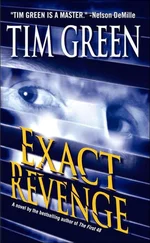Tom Coraghessan Boyle
East is East
For Georges and Anne Borchardt
Those who wish to live horribly and die horribly are choosing a beautiful way of life.
— Yukio Mishima,
The Way of the Samurai
“Bred and bawn in de briar patch, Br’er Fox, bred and bawn.”
— Joel Chandler Harris,
Uncle Remus
He was swimming, rotating from front to back, thrashing his arms and legs and puffing out his cheeks, and it seemed as if he’d been swimming forever. He did the crawl, the breaststroke, the Yokohama kick. Tiring, he clung to the cork life ring like some shapeless creature of the depths, a pale certificate of flesh. Sometime during the fifth hour, he began to think of soup. Miso-shiru, rice chowder, the thin sea-stinking broth his grandmother would make of fish heads and eel. And then he thought of beer—bottles like amber jewels in a bed of ice—and finally he thought of water, only water.
When the sun went down, taking all the color with it and leaving behind a surface as hard and cold as hammered pewter, his tongue was swollen in his throat and the deepest yearnings of his gut gnawed at him like imperious little animals. His hands were bloated and raw, the life ring chafed at his arms, gulls swooped close to appraise him with their professional eyes. He might have given up. Might have eased into the dream of bed and supper and home, slipping into the broth of the sea centimeter by centimeter until the ring floated free and the anonymous waves closed over him. But he resisted. He thought of Mishima and Jōchō and the book he’d taped round his chest, beneath the now limp and sodden turtleneck. Enfolded in a panoply of Ziploc bags, bound to him with black electrical tape and repository of four odd green little American bills, it tugged at the place where his heart beat.
One should take important considerations lightly, Jōchō said. Small matters should be taken seriously. Yes. Of course. What did it matter if he lived or died, if he washed ashore and discovered a simmering pot of noodles with pork and green onion or if the sharks nibbled his toes, his feet, his shins and thighs? What mattered was, was … the moon. Yes: the small slip of a perfect moon cut like a parenthesis into the darkening horizon. It was rising, white and pristine, delicate as a fingernail paring. He forgot his hunger, his thirst, forgot the teeming teeth of the sea, and made the moon his own.
Of course, at the same time, he knew he would make it, which made Jōchō’s advice a lot easier to stomach. It wasn’t only the birds—the pelicans and cormorants and gulls beating west to their roosts—but the smell of the shore that told him as much. Sailors talk of the sweet wafting odor of the landfall that awakens them thirty miles out to sea, but on this, his maiden voyage, he’d never noticed it. Not on board the Tokachi-maru, anyway. It was here, fixed to the surface, the twenty short years of his life raveling out like the threads of a frayed cord, that it struck him. Suddenly his nose was an instrument of vigorous and minutely calibrated sensitivity, houndlike and true: he could discern the individual blades of grass on the black shore that lay somewhere ahead of him, and he knew that there were people there, Americans, with their butter-stink and their pots of ketchup and mayonnaise and all the rest, and that beneath them there was dead dry sand and mud seething with crabs and nematodes and all the unseeable particles of decay that it comprises. And more, much more: the musk of wild animals, the healthy domestic stench of dogs and cats and parrots, the metallic odor of spray paint and fuel oil, the faintly sweet scent of the exhaust of outboard engines, the perfume—so rich and potent it made him want to sob—of night-blooming flowers, of jasmine and honeysuckle and a thousand things he’d never smelled before.
He’d been ready to die, and now he was going to make it.
He was close. He knew it. He stirred his legs in the darkening waters.
* * *
“Shouldn’t we have a light or something?”
“Hm?” His voice was a warm murmur at her throat. He was half asleep.
“Running lights,” Ruth said, her own voice pitched low, almost a whisper. “Isn’t that what they call them?”
The boat rocked softly on the swells, serene and stable, rocked like a cradle, like the big lumpy bed with the Magic Fingers massage in the motel they’d stumbled across her first night in Georgia. There was a breeze too, salt and sweet at the same time, gentle, but just strong enough to keep the mosquitoes at bay. The only sound was of the water caressing the hull, soothing, rhythmic, a run and trickle that played in her head with the strains of a folk song she’d forgotten ten years ago. The stars were alive and conscious. The champagne was cold. He didn’t answer.
Ruth Dershowitz was lying naked in the bow of Saxby Lights’s eighteen-foot runabout. (Actually, the boat belonged to his mother, as did everything else in and attached to the big house on Tupelo Island.) Saxby was stretched out beside her, the drowsy flat of his cheek pressed to the swell of her breast. Each time the boat dipped beneath her, the friction of his fashionable stubble sent small fires burning all the way down to her toes. Five minutes earlier Saxby had knelt before her, adjusted her hips on the broad, flat plank of the seat, stroked open her thighs and moved himself into her. Ten minutes before that she’d watched him grow hard in the dimming light as he sat across from her and tried, unsuccessfully, to inflate a plastic air mattress to cushion them. She’d watched him, bemused and excited, until finally she’d whispered, “Forget it, Sax—just come over here.” Now he was asleep.
For a while she listened to the water and thought nothing. And then the image of Jane Shine, her enemy, rose up before her and she banished it with a vision of her own inevitable triumph, her own inchoate stories jelling into art, conquering magazines and astonishing the world, and then she was thinking about the big house, thinking about her fellow writers, the sculptors and painters and the single walleyed composer whose music sounded like slow death in the metronome factory. She’d been among them for a week now, one week of an indefinite stay—a succession of months that came alive in her mind, months with little gremlin faces and hunched shoulders, leapfrogging into the glorious, limitless, sunlit and rent-free future. No more waitressing, no more hack work, no more restaurant reviews, Parade banalities or Cosmo dreck on safe sex, sex in the shower or waking up at his house. She could stay as long as she pleased. Stay forever.
She had connections.
The thought lulled her, and before she knew it she was drifting off, drawn down into the murk of the unconscious by the champagne, the blanket of the night and the luxurious undulations of the boat, and soon the streaking white forms of sea creatures moved through her dream. She was in the water, floating, and a dozen pallid shapes rushed at her like torpedoes and she cried out … but it was all right, she was in Saxby’s boat and the stars were alive and she was awake—for an instant—before she fell back into her dream. Porpoises, they were only porpoises, she saw now, and they frolicked with her, poked their bottle snouts between her legs and hoisted her onto their slick and streamlined shoulders … but then something went wrong and she was alone in the water again and there was something else there, a shadow rising from the depths, sinister and quick, and it hit her, hard, with a thump that woke her. “Sax?” she said, and at first she thought a boat had run into them because of the lights, because of the lack of lights—she wasn’t thinking clearly—“Sax? Did you feel that?”
Читать дальше











